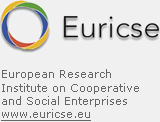November 6-8, 2008
University of Roma Tre, Faculty of Economics,
Via Silvio D’amico 77, Rome, Italy
Call for papers
One of the most challenging themes for economists and social scientists today is to explain why some countries grow faster than others and how a sustainable economic development takes place in some countries and not in others. Adam Smith observed that some nations are richer even if not all the individuals in that society work, whereas other nations are extremely poor even if all the individuals work. He attributed most of the output differences among countries to better organization and labour division. Recently, there has been burgeoning literature in this field but theories and empirical analyses about economic growth significantly diverge. The process of globalisation and the development of the knowledge society have raised new challenges both for the explanation of persistent differences in growth rates and per capita incomes and for the choice of appropriate policies to foster growth.
The labour market – which has to be considered as a social institution in order to be deeply understood - seems to be one of the most important factors for economic growth since the latter is mainly determined by labour productivity. In turn, labour productivity growth has to be explained; and, in this case as well, theories and empirical evidences diverge significantly. Recently, the mainstream recipe to foster labour productivity growth has been labour flexibility: “putting the right workers in the right place and the wrong workers out of wrong place”. However, in the European Union, where in the last decade the labour market was subject to radical reforms which increased labour flexibility, one can still observe in many countries high unemployment rates and low labour productivity.
At the same time, economic growth remains largely unexplained if one considers only labour and capital accumulation; total factor productivity seems to come into play. Human capital and technological innovation have often been seen as the drivers of TFP, but these in turn have to be explained, and the greatest source of long run growth seems to be found in the “black box” where institutions and economic public policies play the most important role. Indeed, economic institutions - widely defined as web of rules patterning the interaction between economic agents and the mechanism of resources allocation - allow better comprehension and deeper explanation of the process of economic growth and of the cross – country variation in the level of income per capita,
The 2008 Conference of EAEPE in Rome will address, in a broad sense, such themes and will contribute to the debate on economic growth and development, through a multidisciplinary, institutional and evolutionary perspective.
Sumbission of paper proposals
For papers proposals: Upload a 600-1000 word abstract to
http://eaepe2008.eco.uniroma3.it
by April 1st 2008.
The abstract should clearly mention:
- Title of the paper
- Name of the author(s) and full address of the corresponding author (postal address, phone, fax and email)
- the aim of the study and methodology
- (expected) results and/or conclusions
- up to 5 keywords and code of the (closest) EAEPE research area (see eaepe web site)
NB. Online submission and the conference web site will be available from 30 January 2008.
All the submitted abstracts will be refereed by the scientific committee.
Complete session proposal (four papers):
Please send your session proposal to
[email protected]
and upload separately the abstracts of the session papers on the Conference web site stating explicitly in the abstract page that the papers are part of a session proposal http://eaepe2008.eco.uniroma3.it
Important datelines:
Deadline for abstract submission:1st April, 2008
Notification for abstract acceptance: 30th May, 2008
Deadline for paper submission: 20th September, 2008
In order to be included in the final program, the paper has to be submitted before the above stated date and at least one of the authors has to be registered, has paid the conference fee and be a paid EAEPE member. Please note that you have to be an EAEPE member in order to attend the Conference.








